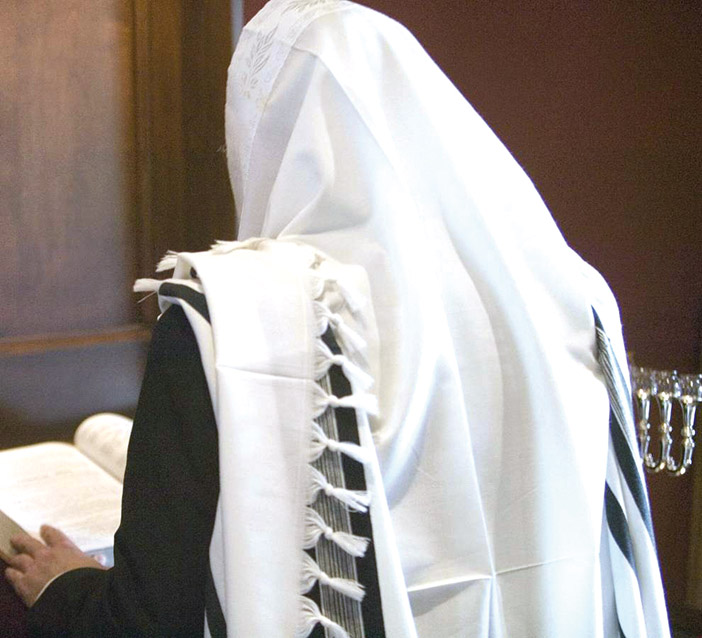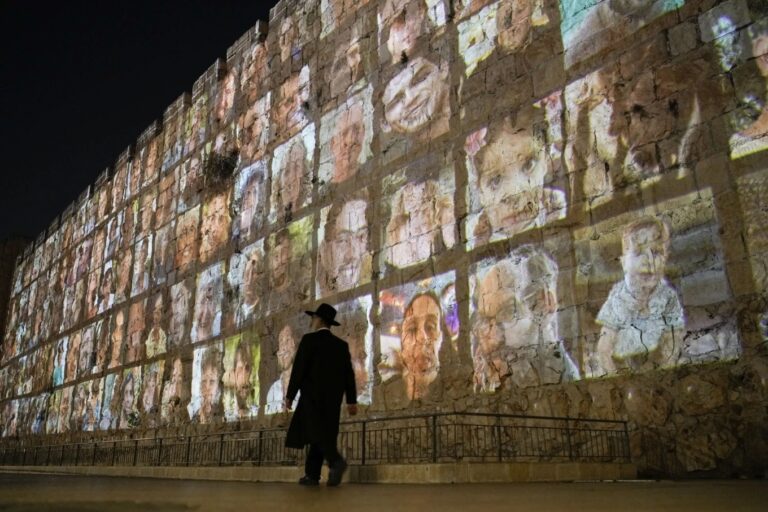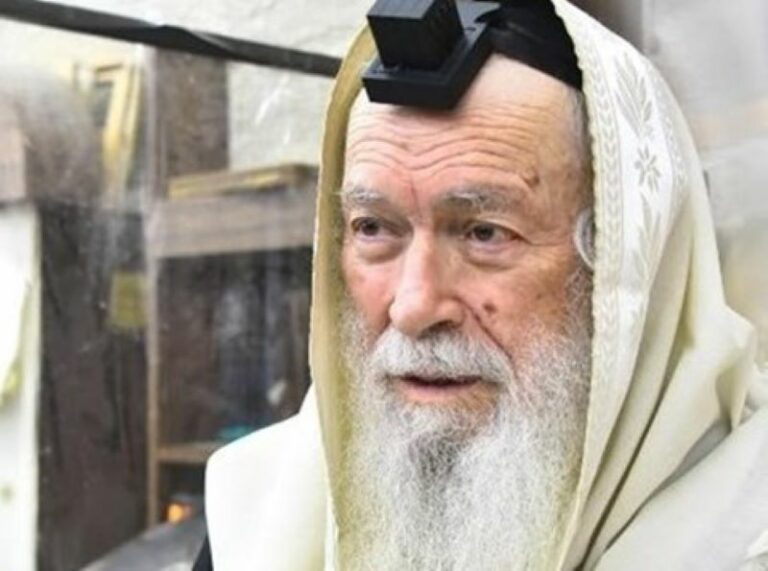(By Rabbi Yair Hoffman for 5TJT.com)
Recent headlines in the Jewish media have prompted an analysis of what the halacha says to do regarding a Rabbi who has fallen. This article does not address the veracity of any accusations per se. It merely discusses the halachic issues involved.
There is a well-known Mitzvah to honor Torah scholars (Sefer HaMitzvos 209). Although the Rishonim cite different verses as to the source for the Mitzvah, it is almost universal that the Mitzvah is a Biblical one. Indeed, it is such an important Mitzvah that the Meiri (Yuma 71a) writes that it is a greater Mitzvah to honor a Torah scholar than to honor a Kohen Gadol – the High Priest in the Bais HaMikdash.
THE SCHOLAR WHO FALLS
The Talmud in Menachos (99b) discusses a case of a Torah scholar who has fallen morally. Raish Lakish tells us that we do not shame him in public. To back up this position he cites a verse in Hoshea (4:5), “You will stumble by day and the ‘prophet’ who is with you shall stumble at night, and I shall silence your mother.” The Maharsha cites Rashi who explains the verse to be understood as “cover it up like the night.” This seems to be the ruling of the Shulchan Aruch as well (Yore Deah 334:42).
However, this case is limited to a Torah scholar who has merely fallen. The Shulchan Aruch (Yore Deah 243:3) states that one who makes a mockery of the Mitzvos and has no fear of Heaven – he is likened to of the lightest of people in the congregation in regard to all matters. The Shiurei Bracha further amplifies this ruling. He states that “a Torah scholar like this who has in his hand Chillul Hashem – a desecration of G-d’s Name – it is a most serious matter. The public learns from his example to cheapen the Mitzvos in the Torah. He is considered both a sinner and someone who causes others to sin.”
The Birchei Yoseph (Yore Deah 243:3) citing the Zkain Aharon (32) rules in regard to any Talmid Chochom that has in his hand Chillul Hashem – a desecration of G-D’s Name – it is forbidden to hear words of Torah from his mouth, and one may not rely upon his rulings.
The Vilna Gaon (YD 243:9) explains regarding the ruling of the Shulchan Aruch about one who makes a mockery of the Torah that it is because he is not considered within the category of “And all His holy ones.”
The question is, however, what are the parameters of a desecration of G-D’s Name versus that of merely falling? The Radbaz (Volume VI Responsa #2078) seems to indicate that the determining factor is whether it was done publicly or not. If we delve slightly deeper as to why this should be the determining factor, it would seem that if it is not done in public, the scholar is perhaps not so brazen about it. If, however, he sinned brazenly and involved others in the particulars of what he was doing – then even the Radbaz would likely consider it just like it was done publicly.
SHULCHAN ARUCH’S VIEW OF THE PARAMETERS
It is also not clear that the Shulchan Aruch and the commentators would necessarily agree with the Radbaz’s parameters. Indeed, the Bais Yoseph (334) seems to indicate that the parameters of “desecration of G-D’s Name in hand” is when the sin is repeated a second time.
The Baal HaTanya, in his Rav Shulchan Aruch (Hilchos Talmud Torah 4:3) writes that such a person is considered to be so despicable that even his accidental errors are considered to be purposeful in the eyes of Hashem.
ANOTHER FACTOR
There is, however, a new factor that is quite likely a game-changer. In recent years, it has been discovered that when a person of power or influence over others, such as a clergyman or teacher, is involved in abusing others or taking physical advantage of others – then that abuse can have severe and far-reaching consequences. In a 2013 edition of the “International Journal of Adolescent Medical Health” (2013;25) an article appeared entitled, “Child sexual abuse and the pathophysiology of suicide in adolescents and adults.”
The article demonstrated that Child sexual abuse (CSA) is associated with various psychopathologies, including maladaptive and impulsive behaviors, and suicidal behavior in adolescence and adults. The article listed study after study that demonstrates how CSA is related to an increases in the following diagnoses: depression, post-traumatic stress disorder, conduct disorders, eating disorders, alcohol and drug abuse, panic disorders, borderline personality disorder, which can result in the ideation of suicide.
QUALIFICATION OF YD 334:42
It seems clear that if the “falling” involves a real danger toward others, then the issue is also one that is deemed a sakana, a danger to others. The ruling of Raish Lakish does not supersede our obligation to protect others. True, efforts should be made to minimize the shame involved – but the first order of priority is to protect others. Unfortunately, some of our religious organizations have been somewhat slow to realize the connection between CSA and suicide ideation. Others, thankfully, have not.
SECULAR VALUES VERSUS TORAH VALUES
In the current secular system, a somewhat arbitrary differentiation has arisen between what constitutes a legally prosecutable act of abuse and one that is not a crime. That distinction has to do with the age of majority. Yet, the data shows that even in older years the danger still exists. From a halachic standpoint, it would seem that even if the “falling” involves the abuse of older victims – the same criterion should still apply. At a minimum, the person involved should not be in a position to continue hurting others. Steps should also be taken to ensure that the person not be involved in such a capacity in another community.
TWO OTHER ISSUES
There are two other important issues as well. Firstly, we should first ensure that that the charges are actually true. Many people have had their lives ruined by false charges. On the other hand, often family members are blinded to the reality that their relative may have a serious problem.
There is a very instructive Rashba on this point (responsum volume 3:393):
“It seems to me that if the witnesses are believed by the investigators, they are permitted to levy a financial fine or a physical punishment—all in accordance to what appears to them. And this sustains the world. For if you establish things solely on that which was delineated in the Torah, and not punish except for in the manner that is [strictly] delineated in the Torah, it would come out that the world [order] would be destroyed. It would come out that they would be breaking down the protective fences of the world, and the world order would be destroyed. They have already levied such fines concerning one who strikes another physically, etc. In each and every venue, they adjudicate matters in order to protect the generation. And this is how they conduct themselves—in each and every generation and in each and every venue that they see that the hour demands it. Now, they [the sages] have said that Rav Huna, who was in Babylonia, chopped off the hand—and accordingly, the investigators who did this, if they saw a need in the time to make a communal rectification, they did so properly. And the same is true when there is an additional legal argument of Hormana D’Malka as they did with Rabbi Elazar in the beginning of the chapter of “HaPoalim.”
In a letter to Rav Feivel Cohen dated 2004, Rav Elyashiv zt”l wrote “From the words of the Rashba we observe that regarding a matter that contains within it “tikkun olam,” the sages of Israel in each generation do have the ability to erect fences and to stand in the breach—even in a situation where we do not have the additional legal argument of “the king’s decree.”..
However, this permission to inform the authorities is when it is clear that that the offender was in the wrong—then [we consider that] it does involve the issue of tikkun olam. However, in a situation where there is not even raglayim la’davar (any indication of guilt); rather, it is some imagination—if we permit it, it is not only that there is no tikkun olam, a rectification of the world—rather there is destruction of the world here. It is possible that on account of some bitterness of the student toward the teacher or on account of some psychological illusion we are placing a man into a fate worse than death—where he has no guilt at all on his hands. I see no heter to permit it under such circumstances.”
The second issue is that, while ensuring the safety of the public – even the public beyond our immediate community, we should still deal with the perpetrator in a compassionate manner. We should create an infrastructure in which he can continue living a life without unnecessary shame, and yet still protect others. There should also be a program of Teshuvah, wherein the person receives treatment and realizes that he has done wrong (many of the perpetrators, unfortunately, never admit it to others or even themselves).
TEACHING TORAH
It is clear, however, that such a person should not be teaching Torah or other subjects either. What about learning Torah? The Baal HaTanya continues to quote the Kabbalists that while in a state where he is still evil and has not performed sincere Teshuva there is no question that any Torah learning or Mitzvos on the part of such a person strengthens the Klipos, nonetheless, he should continue learning Torah and performing Mitzvos because when and if he will ultimately do Teshuva – they will be there for him.
CONCLUSION
In conclusion, there is a fascinating Kochvei Ohr which discusses the sin of Acher – Elisha Ben Abuyah – the teacher of Rabbi Meir and the sage who fell. While talking to his teacher who went off the path of Torah, Acher the teacher told Rabbi Meir that he had reached the Shabbos boundary. Rabbi Meir asked him how he knew. The teacher said that he was counting the footsteps of his horse. Rabbi Meir asked Acher to come back and return to Judaism. Acher responded that he could not because he was privy to a Bas Kol that said, “Return you wayward sons all except Acher – who knew my Glory and rebelled against Me..”
Rabbi Meir tried to convince him to come back anyway. Rav Yitzchok Blaser – the author of the Kochvei Ohr and student of Rabbi Yisroel Salanter asks two questions: The first is that how could it be that Hashem did not want the penance of Acher? The second question he asked was how it could be that Rabbi Meir is going against a Bas Kol – a direct request from Hashem Himself?
The Kochvei Ohr answers that generally speaking Teshuva is always somewhat tainted. We know that Hashem will accept our Teshuva ultimately if we offer it and He will forgive us. Even though it is tainted in this manner, nonetheless, Hashem does not care and accepts it anyway.
This is true for most people. However, Acher was so depraved and had fallen so far that he needed a completely perfect Teshuvah. He required a Teshuvah untainted by the knowledge that it would be accepted.
Hashem wanted Acher to perform this type of Teshuva and that is why Acher heard that Bas Kol. Rabbi Meir was aware of this, while his own teacher was not. He tried convincing him to do real Teshuvah anyway – even though it would not have been accepted.
We see from the words of Rav Blaser how very much Hashem wants everyone to do Teshuvah. May all of us be zocheh to a complete Teshuva in all that we do wrong. Amain.
The author can be reached at [email protected]







3 Responses
In our generation we are seeing too many frum rabbis who are definitely not good people, whether they steal money, are perverts, or other crimes. What to do with them?
A person who is suspect should be removed from his position until after a investigation.
In many places and in many cases, no competent Bais Din is available to properly investigate accusations of impropriety. Those who would totally rule out the use of secular courts to do this and come to conclusions, in such circumstances, should realize that this can give a green light to evildoers.
The maharshah says there that ain mashgichim le bas kol because lo beshamayim hi (BM 59). ain devar she omed lifnei teshuvah – only its made very difiicult for willful sinners.